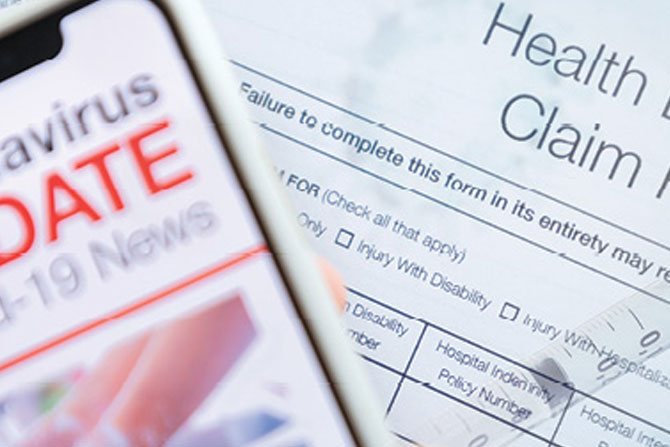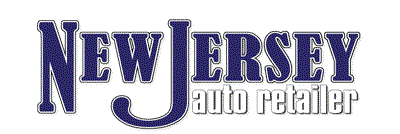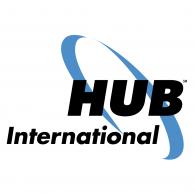By Bruce Mazzarelli
This past year was like no other in recent history. The worldwide pandemic hit the U.S. in early 2020 and our daily lives were changed in unprecedented ways. COVID-19 resulted in significant illness, hospitalizations, and heartbreaking death tolls. Enjoying activities often taken for granted, such as going out to dinner, visiting retail stores, and having family gatherings, were very difficult — if even possible. Masks, social distancing, nonessential closures, reduced gathering capacity, and quarantines became the new norm to minimize the spread.
Running a successful business faced unforeseen threats in 2020. Dealerships struggled early in the pandemic with reduced consumer demand, maintaining staff, and the fight to be considered an essential business. The cost of providing employee benefits also came under pressure in 2020. This was particularly true early on when many employers furloughed employees, in effect paying for benefits coverage without a return on that investment. Added to that, new rules around mask mandates, workplace disinfecting, and employee monitoring had to be implemented.
Many of these challenges are expected to persist deep into 2021. We expect new challenges to emerge, such as an employer’s development of an effective vaccine policy that aligns with one’s corporate culture. This article focuses on discussing the impact of COVID-19 on the workplace, employee benefits programs in 2020 and what the future holds as we continue to battle the pandemic.
Early in the pandemic, many dealerships furloughed employees, intending to bring them back swiftly. This was particularly true for salespeople, when just service was deemed “essential” and demand was limited. As time passed, all functions (including sales) were back up and running. However, many operating rules changed regarding client interaction, mask mandates, social distancing, workplace precautions, and employee safety. Though vehicle demand gradually returned, these changes came at a cost, adding to dealerships’ financial pressures. Many dealer principals wisely looked at these pressures as an opportunity to evaluate business practices; in particular, the effectiveness of current pay policies, staffing, and benefits. For example, some recognized a need for better alignment of sales commissions to deal profitability, along with “right-sizing” the salesforce. Others implemented cost-cutting strategies such as offering High Deductible Health Plans (HDHPs) for the first time.
Employee benefits programs were impacted significantly in 2020. Rules were modified to allow non-active (furloughed) employees to remain on active coverage outside of traditional COBRA. Accommodations were made with a loosening of payment terms and grace periods. Along with Paycheck Protection Plan (PPP) loans, these changes assisted many in weathering the storm. Specific health insurance coverage terms were also impacted, with new requirements that the costs associated with COVID-19 be covered at no expense to the insured party, regardless of plan design. Testing, treatment, and even hospitalizations are covered 100% by fully-insured plans, with self-insured plans generally following suit. We also saw significant telemedicine utilization increases, often with $0 cost-sharing and virtual doctor’s visits. An exemption was made that allowed those patients in an HDHP to have virtual visits at little or no cost, without violating the tax rules inherent to HDHPs.
Health insurance renewal premiums faced upward pressure in 2020, with carriers often adding a “COVID-19 rate load” to their renewal calculations. This resulted in premiums being increased by 3%-11%, depending on the carrier and specific circumstances. We expect to see this trend continue with 2021 renewals. Unfortunately, the market still faces uncertainty, with insurers generally taking a very conservative stance on rates. This was proven in the most recent NJ CAR Benefits Survey, where health insurance renewal increases were at their highest levels since 2017.
For clients who receive claims data regularly, you may be able to get (or have seen) a report specific to your claims associated with COVID-19 treatment. Suppose you currently have a “wellness fund” provided by your current carrier (generally available exclusively to large groups). In that case, you might ask if you can purchase personal protection equipment (PPE) using those funds. Additionally, you will want to make sure you are not at risk of losing any unused wellness dollars, perhaps requesting to roll over those funds to the new plan year.
Ancillary coverages such as dental and vision were also impacted due to the pandemic, though differently than medical coverage. Not unexpectedly, claims for dental and vision visits were way down, particularly in the first six months of 2020. As a result, ancillary renewals were often released with no rate increase, and many carriers reduced monthly premiums or offered premium “vacations” in line with those reduced claims costs.
As employers move into 2021, employee monitoring, testing, and vaccinations, are policy points one must consider. In addition to mask requirements, social distancing and disinfectant rules, current guidelines require employers to monitor their employees’ health to minimize the spread of the virus. This is expected to continue through much of 2021. It is important to note that testing for COVID-19 continues to be covered by health insurance based on symptoms and exposure — but is generally NOT covered as a condition of employment, such as requiring employees to show a negative test before returning to the worksite.
Vaccine supplies are currently limited but expected to grow as new manufacturers get approved and gear up production. Once more vaccines become available, employers will have important decisions to make around employee vaccination strategies. Some might take a hands-off approach, allowing employees to make their own vaccination decisions. Others might take an active role, including the support of on-site vaccinations or even mandating eligible employees get vaccinated (excepting valid exemptions). As past employer-based vaccination strategies have proven, support at the top drives success, regardless of the path chosen.
While dealerships continue to face challenges in 2021, perhaps there is a silver lining. Demand is back, if not up, for many. This is likely due to pent-up replacement needs, more people moving to the suburbs, and a general hesitancy to take mass transit. Thoughtful business decisions in the areas of benefits, personnel, and employment policy can help turn the many challenges faced today into continued opportunities for long-term growth and success.
Bruce Mazzarelli is Vice President of VP Employee Benefits at HUB International. He can be reached at bruce.mazzarelli@hubinternational.com.
DISCLAIMER: The points contained within this article are not intended to provide legal or financial advice. Please speak to your legal or financial representation before making any decisions regarding policy changes related to the pandemic.








